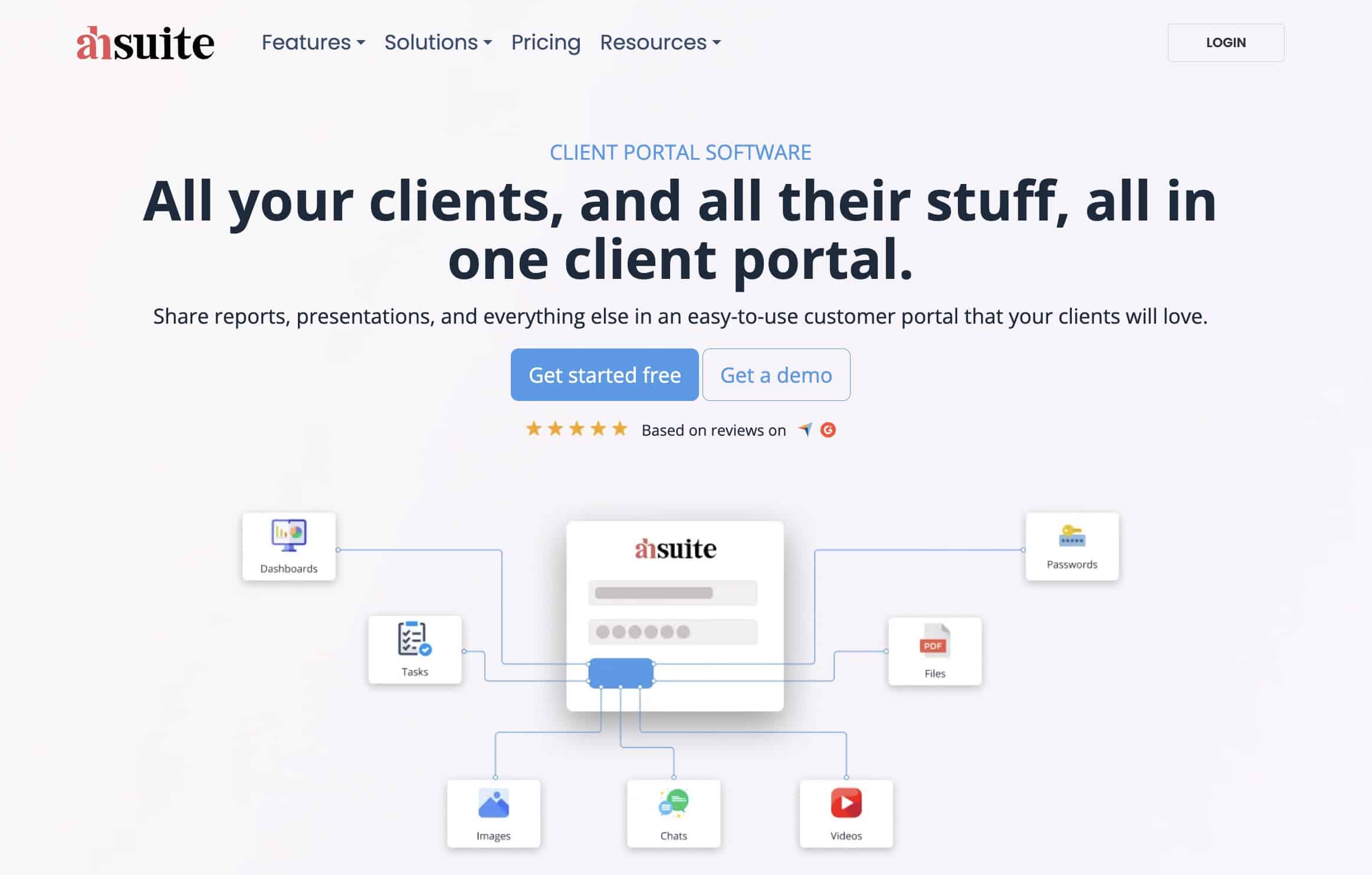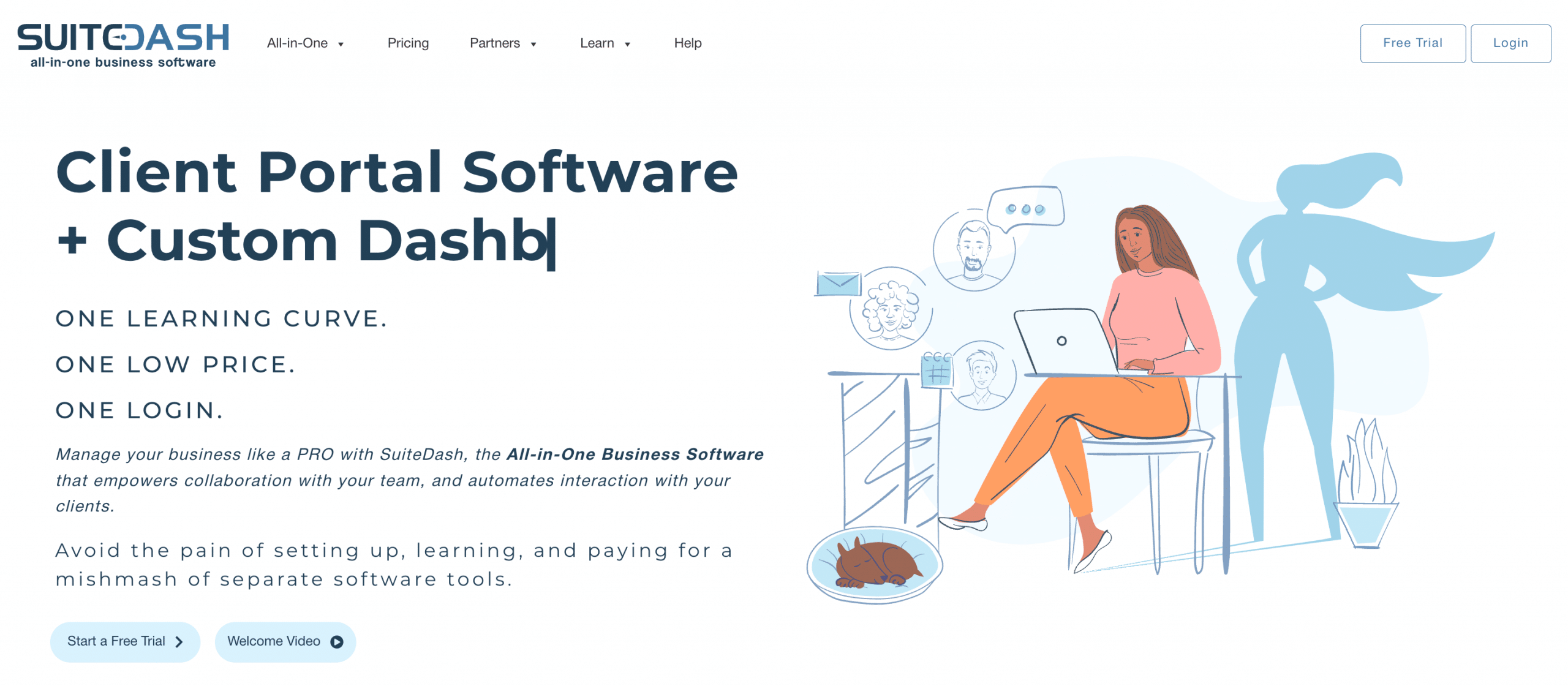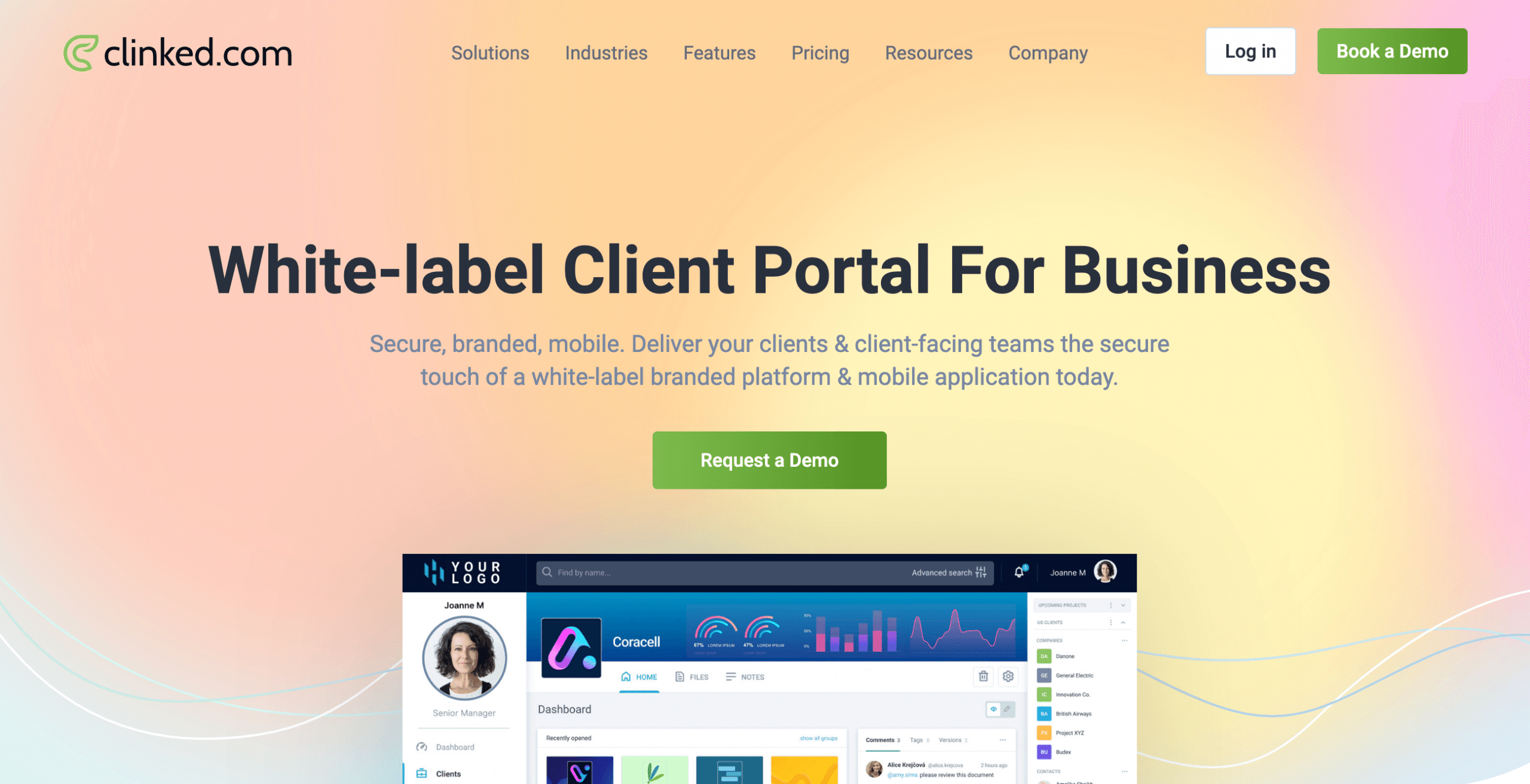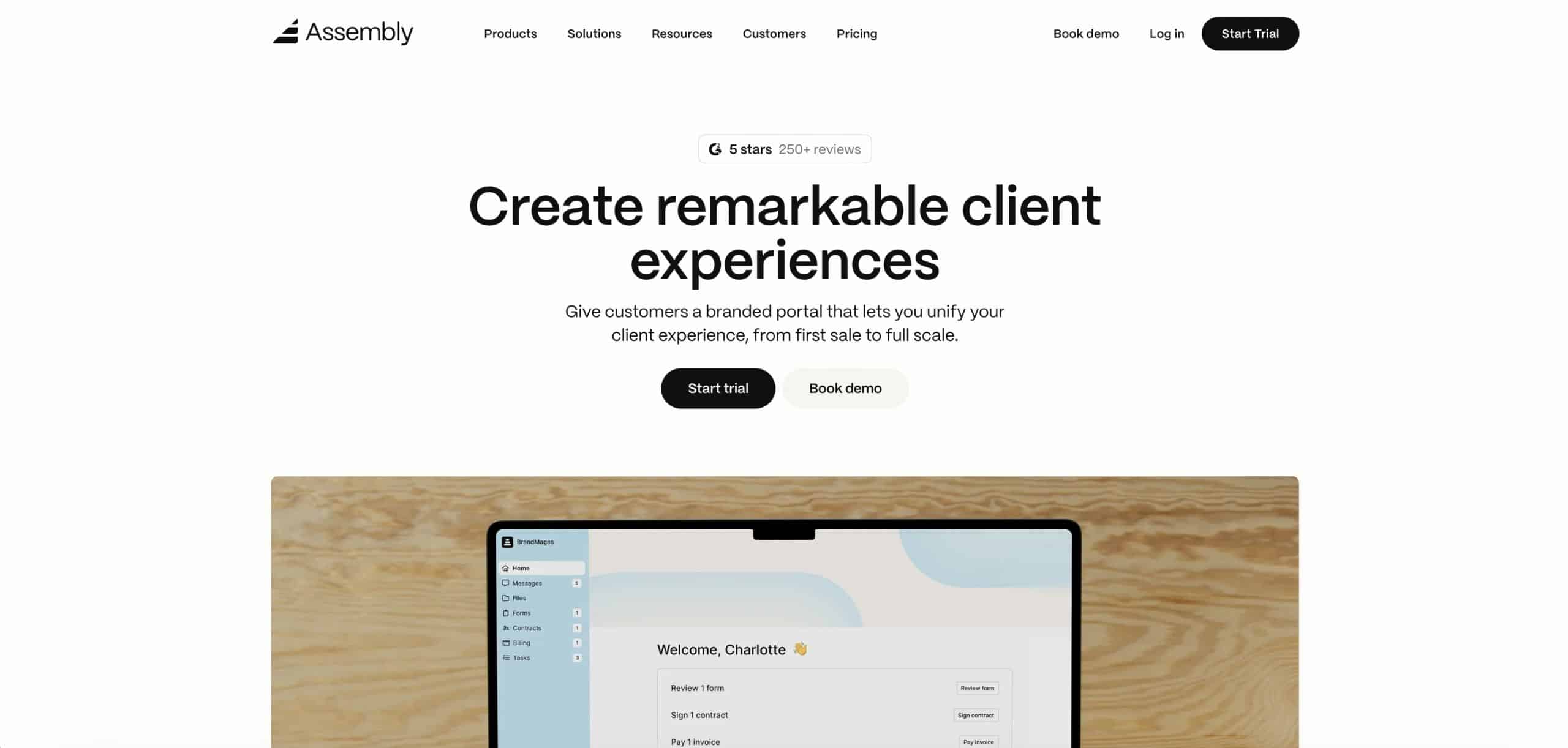In today’s digital world, businesses and their clients exchange sensitive information daily. From financial records and legal documents to personal data, protecting this information is no longer optional—it’s essential.
Standard tools like email and simple file-sharing links often lack the robust protection needed to guard against data breaches. This is where secure client portals come in, offering a dedicated, fortified environment for communication and collaboration.
What is a Secure Client Portal?
A secure client portal is a private online space that allows businesses to share files, send messages, and collaborate with their clients in a highly protected environment. Think of it as a digital office, accessible only to authorized users with the right key.
Unlike standard email, which can be intercepted, or basic cloud storage, which may have limited security controls, a secure client portal is built from the ground up with security as the top priority. It provides a centralized hub where all interactions and documents are encrypted, tracked, and managed. This is why they are indispensable across various industries:
- Accounting firms use them to securely exchange tax documents and financial statements.
- Law offices rely on them to share confidential case files and legal correspondence.
- Healthcare providers need them to share medical records while complying with regulations like HIPAA.
- Consulting agencies use them to manage project files and collaborate on sensitive client strategies.
Key Features of Secure Client Portals
Not all client portals are created equal. Truly secure platforms offer a multi-layered defense to protect your data. Here are the core features to look for.
Data Encryption
Encryption is the process of scrambling data so it is unreadable to unauthorized parties. Secure portals use this to protect information both when it is traveling over the internet (in transit) and when it is stored on servers (at rest). For data in transit, platforms use protocols like TLS v1.2. For data at rest, the gold standard is AES 256-bit encryption, used by Ahsuite, SuiteDash, Huddle, and Clinked. This combination means your information is protected end-to-end with bank-grade security.
Cybersecurity Standards
Adhering to recognized standards shows that a provider’s security claims have been verified by a third party. Certifications like ISO 27001, held by Huddle and Clinked, prove that they manage data securely and systematically. For industries like healthcare, HIPAA compliance is essential, a standard met by SuiteDash, Assembly, and Clinked. For those working with government bodies, Huddle’s FedRAMP approval signifies it meets the strict, standardized security requirements of U.S. government agencies.
Two-Factor Authentication (2FA)
A password alone can be a single point of failure. Two-factor authentication (2FA) adds a crucial second layer of defense by requiring a second form of verification, usually a temporary code from the user’s smartphone. This protects accounts even if a password is stolen. Secure portals like Ahsuite, SuiteDash , and Huddle offer 2FA to prevent unauthorized access. This feature is a powerful deterrent against common cyberattacks and helps guard against social engineering attempts.
Access Control and Permissions
This feature ensures that users can only view and interact with the information they are explicitly authorized to access. This is vital when sharing sensitive data with multiple external partners. Platforms like Huddle and SuiteDash provide a full suite of administrative controls to manage user permissions on a granular level. You can control who sees which files, folders, or messages, ensuring that confidential data is only accessible to relevant parties and a complete audit trail tracks all activity.
Benefits of Using Secure Client Portals
Adopting a secure client portal does more than just protect data; it offers significant business advantages.
Enhanced Data Security
A dedicated portal offers far greater protection than general-purpose tools like email. It creates a secure environment fortified with multiple layers of defense, including advanced encryption, firewalls, and intrusion detection systems. The physical data centers used by providers like SuiteDash are also highly secure, featuring round-the-clock surveillance, biometric scanning protocols, and redundant power systems to prevent outages. These combined measures protect your sensitive client data from both digital and physical security threats.
Increased Client Trust
Demonstrating a strong commitment to data security is a powerful way to build and maintain client trust. When clients share financial, legal, or personal information, they need assurance that you are handling it responsibly. Using a secure portal with transparent security policies shows you prioritize their privacy and are taking proactive steps to protect their data. This confidence can be a key factor in client retention and serves as a significant competitive advantage, attracting new clients who value security.
Improved Collaboration and Efficiency
Centralizing all files, tasks, and conversations in one place eliminates the inefficiency of searching through scattered email threads for the latest document version. All stakeholders can access the most up-to-date information in a single, secure hub. Features like task management, which a Baker Tilly case study highlighted as a key benefit of Huddle, ensure that project statuses are always clear and immediately available. This streamlined workflow saves time, reduces errors, and allows your team to focus on productive work.
Easier Compliance with Data Protection Laws
Many industries are governed by strict data protection regulations like HIPAA, GDPR, or CCPA, which carry severe penalties for violations. Using a client portal that is built to meet these standards provides a clear framework for compliance. These platforms often come with the necessary legal documentation, such as a Business Associate Agreement (BAA) for HIPAA or a Data Processing Addendum (DPA) for GDPR, simplifying the legal requirements and providing an auditable record of your security measures.
Examples of Secure Client Portals
Several excellent platforms specialize in providing secure client portal solutions.
Ahsuite

Ahsuite is a client portal platform designed with a strong focus on straightforward, effective security. A core feature is its use of AES 256-bit encryption, a standard trusted by governments and financial institutions for protecting classified information. Additionally, Ahsuite employs dynamic filepaths, which adds a layer of obscurity to prevent direct, unauthorized access to stored files. To secure user logins against password theft, administrators have the ability to enforce two-factor authentication (2FA), ensuring that only authorized individuals can access the portal.
SuiteDash

SuiteDash is an all-in-one platform built on the secure Amazon AWS technology stack. The company ensures over 99.9% uptime and protects data with continuous, near real-time backups that are stored encrypted in a separate location. All data is encrypted both in transit and at rest using TLS 1.2 and AES 256-bit encryption. SuiteDash is compliant with major regulations including HIPAA, GDPR, and PCI/DDS, making it a robust choice for businesses needing a comprehensive and secure solution.
Clinked

Clinked provides a secure portal with a strong emphasis on certifications and compliance. The platform protects data with bank-grade encryption, using 256-bit SSL for information in transit and AES for data at rest. Its ISO 27001 accreditation confirms that it manages data securely and systematically. In the UK, it is G-Cloud approved and Cyber Essentials certified. For US-based needs, Clinked is compliant with HIPAA, FISMA, and FIPS, making it suitable for healthcare and government data.
Ideagen Huddle

Huddle is a collaboration platform engineered with government-grade security at its core. It was one of the first SaaS providers to achieve FedRAMP Authority to Operate (ATO), making it a trusted choice for U.S. government agencies. In the UK, it is an approved G-Cloud vendor. The platform is ISO/IEC 27001:2013 certified and uses TLS v1.2 for data in transit and FIPS 140-2 compliant 256-bit AES for data at rest, ensuring robust protection for sensitive documents.
Assembly (formerly Copilot)

Assembly, formerly Copilot is dedicated to embedding data privacy and security into every part of its business. It demonstrates this commitment through compliance with key frameworks including SOC 2, HIPAA, GDPR, and CCPA. The company maintains a public Trust Center powered by SafeBase, where users can access security documentation like its pentest report and network diagram, and review policies on everything from incident response to data classification. This transparency allows potential customers to easily conduct their own security reviews.
Best Practices for Using Secure Client Portals
Simply having a secure portal isn’t enough; you also need to use it correctly.
Setting Permission Levels Correctly
Incorrectly configured permissions can undermine the security of the entire portal. It’s crucial to implement the “principle of least privilege,” granting each user the minimum level of access required to perform their duties. This prevents team members or clients from accidentally viewing or modifying confidential information that is not relevant to them. Regularly auditing these permissions—especially when a user’s role changes or a project ends—is a critical security practice to ensure that access rights remain appropriate and data exposure is minimized.
Regular Security Updates and Monitoring
The security of a client portal is a shared responsibility. The provider must commit to regular software updates and patch management to address new vulnerabilities as they are discovered. SuiteDash, for example, has an in-house patch management policy and performs ongoing network security audits. On your end, it’s vital to use the portal’s auditing features. Huddle provides a complete audit trail to track who is accessing and editing content and when, which helps in monitoring for suspicious activity.
Ahsuite Secure Client Portals
In an era where data is one of your most valuable assets, protecting it is paramount. Secure client portals offer a powerful solution, moving beyond the vulnerabilities of traditional communication methods to provide a fortified, efficient, and compliant environment for collaboration. By prioritizing key features like robust encryption, adherence to cybersecurity standards, and granular access controls, you can safeguard your clients’ data, build lasting trust, and streamline your business operations.
If you’re ready to enhance your data security and client trust, consider giving Ahsuite a try. With bank-grade encryption, enforced 2FA, and a user-friendly interface, Ahsuite provides the protection you need to collaborate with confidence. You can get started for free with up to ten client portals.
